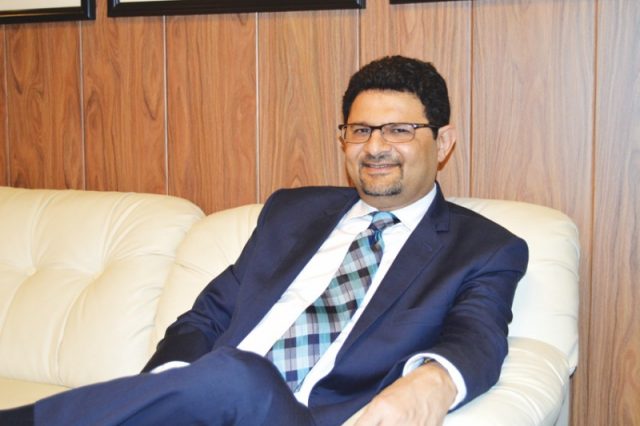ISLAMABAD: Minister for Finance and Economic Affairs Miftah Ismail Sunday said the budget for the fiscal year 2018-19 will expand the economy by more than six per cent, facilitate taxpayers, encourage the growth of businesses besides financially helping vulnerable sections of society, and building infrastructure in backward areas like FATA.
Speaking at a National Budget Seminar organised by the Institute of Cost and Management Accountants of Pakistan (ICAP) here, he said, “With this budget, I want to make life easier for people and promote businesses by increasing the speed of economic growth.”
He said this year, GDP growth rate was at 5.8 per cent while before that it was 5.4 per cent and the target for 2018-19 was set at 6.25 per cent.
Pakistan needs to consistently grow faster as was done by Japan, Korea and China which maintained higher growth rates for decades.
“Our growth is slower than the growth of Bangladesh and Sri Lanka. We intend to take our growth beyond 7 per cent.”
The 5.8 per cent growth figure was estimated by the Pakistan Bureau of Statistics (PBS) and verified by the World Bank (WB), International Monetary Fund (IMF) and the Asian Development Bank (ADB), he noted.
Miftah said according to the proposed budget, the taxes were lowered but it was made mandatory for people to become tax filers if they wanted to buy expensive property and cars. This step was taken to make them part of the white documented economy.
“Anybody wanting to buy property worth Rs4 million, or purchase new and imported vehicles has to become an active taxpayer. These measures will change nature of the Pakistani economy.”
He assured that the procedure for filing tax returns would be made more simple. He said tax rates for the present taxpayers particularly the salaried class were reduced. People were encouraged to accurately report buying price of a property by bringing down tax rates.
He informed that Pakistan had received a $1 billion long-term loan from the commercial bank of a friendly country.
He said it was estimated that Rs3,935 billion in taxes would be collected in the current year which would be higher than 18 per cent of last year, while the target for the next year was Rs4,435 billion, 11 per cent more than this year.
“When the economy expands, revenues also increase. The economy is set to grow at 6.25 per cent against the inflation which is below six per cent.”
Explaining the measures to generate revenues despite a reduction in tax rates, he said the Federal Board of Revenue (FBR) collected 52 per cent of its taxes from imports arriving at ports.
He said the IMEI numbers of all legally imported handsets would be matched with those that would be active on the networks of telecom operators. The step will stop the theft of phones and smuggling and increase revenue. Sales tax on import and purchase of different items had been cut to 5 per cent.
The minister told that no questions will be asked from 99.8 per cent of persons receiving remittances from abroad but those who will get remittance above Rs100 million will have to explain the sources of funds.
He explained that the Prime Minister Shahid Khaqan Abbasi had asked him to become a federal minister months ago.
He said there was no option but to devalue the dollar as it was kept artificially low for three years during which the exports were decreasing against rising imports.
Pakistan’s exports were $24 billion and $12 billion of these imports were oil imports. “We need to encourage investment and capital formation and increase our exports faster than imports to control the current account deficit.”
Miftah said, “The government will introduce measures to ensure that 100 per cent children are enrolled in schools. Rs10 billion have been allocated for a programme to end stunting which has affected 40 per cent of children in the country.”
Moreover, Rs100 billion were proposed for building of schools, hospitals, roads and other facilities in the Federally Administered Tribal Areas (FATA), he added.
Taxes in the real estate sector have been rationalised in order to encourage people to declare the real worth of their properties, he said.
Speaking on the new tax slabs recently announced by the Prime Minister, Ismail said the tax procedure has not only been simplified but its rate has also been reduced to facilitate the taxpayers.
On a question regarding increasing the petroleum levy, the finance minister said the government will pass on the reduction of international oil prices as it did in previous years.
Talking to the media, Miftah commented that the although the economy has been doing well, it certainly has not fallen to such a point that the government will impose a financial emergency.
The minister said that Pakistan was the 25th biggest economy on the basis of purchasing power parity and in the last five years, in line with the vision of former prime minister Muhammad Nawaz Sharif, the PMLN government has added 12000MW of electricity to the national grid, built an extensive network of roads, and made gas available for industrial, commercial, and domestic consumers.





[…] Source link […]